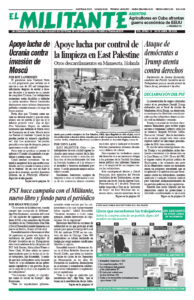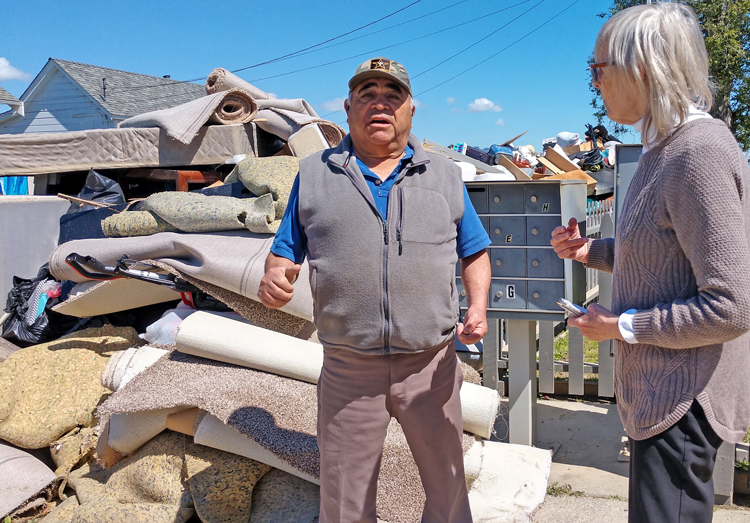PAJARO, Calif. — On March 30, dozens of angry victims of flooding here, many of them farmworkers, marched down muddy and debris-covered streets in a protest demanding government aid and equal treatment for undocumented workers. Ramiro Medrano, who helped organize the protest, told reporters that for weeks he had been hearing the same story — people seeking aid being turned away and endlessly calling helplines that weren’t answered.
Residents of Pajaro were evacuated in the middle of the night March 11 when a levee broke and river water poured into their town. Since then, people who suffered tremendous losses received little or no government help. They received some donated food, clothing and other assistance, but were basically left on their own.
On April 3, a federal declaration finally made it possible for them to be eligible for Federal Emergency Management Agency assistance programs, including grants for temporary housing and home repairs, as well as low-cost loans to cover uninsured property losses. But to get the funds you have to have papers the government considers legitimate, as well as be able to navigate the daunting bureaucratic obstacles put in your way.
When members and supporters of the Socialist Workers Party visited Pajaro April 1, the waters had receded and residents were cleaning up mud-coated yards and making repairs. Piled in front of the houses were giant stacks of muddy and water-soaked mattresses, rugs, book cases and other household items.
We met Alfredo Espinosa and his family cleaning up the mess left by flooding that had risen up to two feet in their home. He expressed the working-class solidarity seen whenever any disaster strikes.
“It’s important for all of us to do this together, from neighbors, to children, to the older folks,” he said. “It builds friendship and we are stronger that way.” Espinosa and his wife, Elodia, were concerned that the city had not picked up the piles of damaged goods lining the streets. They said rats and raccoons come at night in search of food.
An estimated 67,000 undocumented workers live in the two-county area where Pajaro is located. A lot of the fruits and vegetables that make California a key agricultural center are produced here. Compounding the disaster is the fact that with fields still wet, the farmworkers who grow and pick the crops have had their hours slashed or eliminated.
We spoke with Santiago Moreira, who has worked for decades picking strawberries and other crops. Originally from El Salvador, he benefited from the amnesty fought for and won in 1986 by close to 3 million immigrants under President Ronald Reagan. “I like that you are about doing something,” Moreira said when we told him we were campaigning for the unions to get behind the fight for amnesty for immigrant workers.
Erick Narez, who works for the nonprofit Salud Para La Gente, showed me the inside of his apartment. It was empty, with the water-logged sheet rock and floors torn out. “Our problem is that we’re in Monterey County, not Santa Cruz County where the government is better,” he said.
“What matters,” I said, “is how much working people are organized to fight for what we need. The immigrants who marched for aid and equal treatment here have set an example to be emulated.”
Narez is proud that his farmworker father is a member of the United Farm Workers union and said he believes that gaining legal status would aid efforts for farmworkers to unionize. Another issue, he said, is the need for translation for the many workers who speak Mixteco, Triqui or other indigenous languages.
On our visit here and to the adjacent city of Watsonville, we found interest in the Militant’s coverage of how the residents of East Palestine, Ohio, are fighting to get control of the cleanup and rebuilding after the disastrous train derailment there.


